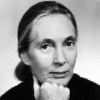People who are too much concerned with little things usually become incapable of big ones.
[Ceux qui s’appliquent trop aux petites choses deviennent ordinairement incapables des grandes.]François VI, duc de La Rochefoucauld (1613-1680) French epigrammatist, memoirist, noble
Réflexions ou sentences et maximes morales [Reflections; or Sentences and Moral Maxims], ¶41 (1665-1678) [tr. Kronenberger (1959)]
(Source)
Present from the 1665 edition. See here for more discussion (English).
(Source (French)). Alternate translations:
They that use to employ their minds too much upon Trifles, commonly make themselves incapable of any thing that is serious or great.
[tr. Stanhope (1694), ¶42]
Those who apply themselves too much to little things, commonly become incapable of great ones.
[pub. Donaldson (1783), ¶38; ed. Lepoittevin-Lacroix (1797), ¶41]]
Those who apply themselves much to little things, commonly become incapable of great ones.
[ed. Carville (1835), ¶35]
Those who bestow too much application on trifling things, become generally incapable of great ones.
[ed. Gowens (1851), ¶42]
Those who apply themselves too closely to little things often become incapable of great things.
[tr. Bund/Friswell (1871)]
Undue attention to details tends to unfit us for greater enterprises.
[tr. Heard (1917)]
Too close attention to trifles generally breeds incapacity in matters of moment.
[tr. Stevens (1939)]
Men too involved in details usually become unable to deal with great matters.
[tr. FitzGibbon (1957)]
People too much taken up with little things usually become incapable of big ones.
[tr. Tancock (1959)]
Those who apply themselves too much to little things, ordinarily become incapable of great ones.
[tr. Whichello (2016)]
Quotations about:
capability
Note not all quotations have been tagged, so Search may find additional quotes on this topic.
Elitism is repulsive when based upon external and artificial limitations like race, gender, or social class. Repulsive and utterly false — for that spark of genius is randomly distributed across all cruel barriers of our social prejudice. We therefore must grant access — and encouragement — to everyone; and must be increasingly vigilant, and tirelessly attentive, in providing such opportunities to all children. We will have no justice until this kind of equality can be attained. But if only a small minority respond, and these are our best and brightest of all races, classes, and genders, shall we deny them the pinnacle of their soul’s striving because all their colleagues prefer passivity and flashing lights? Let them lift their eyes to hills of books, and at least a few museums that display the full magic of nature’s variety. What is wrong with this truly democratic form of elitism?
Stephen Jay Gould (1941-2002) American paleontologist, geologist, biologist
Dinosaur in a Haystack: Reflections in Natural History, Part 5, ch. 18 “Cabinet Museums: Alive, Alive, O!” (1995)
(Source)
Life is like a ten-speed bicycle. Most of us have gears that we never use.
Charles Schulz (1922-2000) American cartoonist
Peanuts [Linus] (1981-05-29)
(Source)
The phrase was also used as the title in a Peanuts collection of Linus' wisdom, Life Is Like A Ten-Speed Bicycle (1997), which included this strip.
AGE, n. That period of life in which we compound for the vices that we still cherish by reviling those that we have no longer the enterprise to commit.
Ambrose Bierce (1842-1914?) American writer and journalist
“Age,” The Cynic’s Word Book (1906)
(Source)
Included in The Devil's Dictionary (1911).
Originally published in the "Devil's Dictionary" column in the San Francisco Wasp (1881-02-12).
We cannot all do everything.
[Non omnia possumus omnes.]Virgil (70-19 BC) Roman poet [b. Publius Vergilius Maro; also Vergil]
Eclogues [Eclogae, Bucolics, Pastorals], No. 8 “Pharmaceutria,” l. 63 (8.63) (42-38 BC) [tr. Mackail (1899)]
(Source)
Invoking the Pierian Muses to finish the tale, after the singer has given the first half.
(Source (Latin)). Alternate translations:
All cannot all things do.
[tr. Ogilby (1649)]
We cannot all do all things.
[tr. Davidson (1854), Wilkins (1873), Greenough (1895), Day Lewis (1963), @sentantiq (2018)]
Scarce may all do everything.
[tr. Calverley (c. 1871)]
We are not equal all
To every theme.
[tr. Palmer (1883)]
All things are not possible to all.
[tr. Bryce (1897)]
We cannot all do everything.
[tr. Fairclough (Loeb) (1916)]
We are not all sufficient for all things.
[tr. Mackail/Cardew (1908)]
No single singer touches all the chords.
[tr. Williams (1915)]
We cannot all succeed in every task.
[tr. Rieu (1949)]
For none of us all is skilful in all things.
[tr. Johnson (1960)]
We are not all capable of all things.
[tr. Kline (2001)]
All who strive to live for something beyond mere selfish aims find their capacities for doing good very inadequate to their aspirations. They do so much less than they want to do, and so much less than they, at the outset, expected to do, that their lives, viewed retrospectively, inevitably look like failure.
Lydia Maria Child (1802-1880) American abolitionist, activist, journalist, suffragist
Letter to John Fraser (1868)
(Source)
The greatest danger to our future is apathy. We cannot expect those living in poverty and ignorance to worry about saving the world. For those of us able to read this magazine, it is different. We can do something to preserve our planet.
Jane Goodall (b. 1934) English primatologist and anthropologist
“The Power of One,” Time Magazine (26 Aug 2002)
(Source)
There are crimes I don’t commit mainly because I don’t want to find out I could.
James Richardson (b. 1950) American poet
Vectors: Aphorisms and Ten-Second Essays #124 (2001)
(Source)
The moral case for intervention is only as strong as the practicality of the mission itself. There is no moral case for doing something you’re not capable of doing.
Dexter Filkins (b. 1961) American journalist
“The Moral Logic of Humanitarian Intervention,” New Yorker (16 Sep 2019)
(Source)
To do the work that you are capable of doing is the mark of maturity.
The greatest evil which fortune can inflict on men is to endow them with small talents and great ambition.
Luc de Clapiers, Marquis de Vauvenargues (1715-1747) French moralist, essayist, soldier
Reflections and Maxims [Réflexions et maximes], #562 [tr. Stevens] (1746)
(Source)
Everybody is a genius. But if you judge a fish by its ability to climb a tree, it will live its whole life believing that it is stupid.
Everything is possible for an eccentric, especially when he is English.
Although men are accused of not knowing their own weakness, yet perhaps as few know their own strength. It is in men as in soils, where sometimes there is a vein of gold, which the owner knows not of.
Jonathan Swift (1667-1745) English writer and churchman
“Thoughts on Various Subjects” (1706)
(Source)
He who can, does. He who cannot, teaches.
George Bernard Shaw (1856-1950) British playwright and critic
Man and Superman, “Maxims for Revolutionists,” “Education” (1903)
(Source)
We judge ourselves by what we feel capable of doing, while others judge us by what we have already done.





















